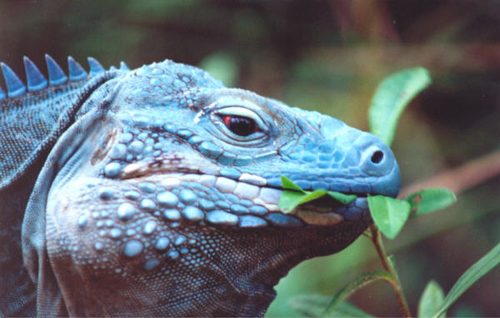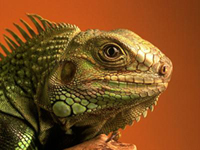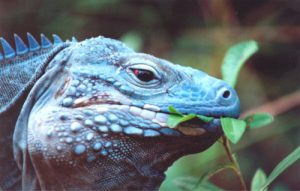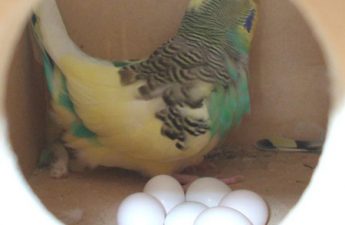In order to ensure that we provide our pet Iguanas with the best diet we possibly can, we need to first understand what foods are best for Iguanas and also learn about the way in which Iguanas absorb nutrients from the food they eat. A healthy diet will give our pet Iguanas the best chance of having a long, healthy life.
Should Iguanas be given a completely vegetarian diet?
Studies of the diets of wild Iguanas have shown that Iguanas are almost completely herbivorous, with their diets consisting almost exclusively of leaves, fruits and flowers. While individual Iguanas seemed to show preference for different types of vegetation, showing that each Iguana did in fact seem to have a personalized sense of taste, their diets were almost 100% vegetarian. So although some Iguana experts recommend that the Iguana diet be supplemented with small amounts of protein such as egg yolks, it is probably advisable to avoid the addition of any meat based proteins into the Iguana diet.
Iguana digestive system
Another important fact about iguanas is that they are hind-gut fermenters, which means that a lot of the nutrient absorption, vitamin production and water re-absorption occurs in the lower intestinal tract of the animal. This makes it vital that the Iguana diet is high in fiber. Iguana experts recommend that growing Iguanas are fed a diet that has a fiber content of at least 14%, whilst adult Iguanas should be fed a diet that has a fiber content of at least 16%.
What should pet Iguanas be fed?
Experts recommend that captive Iguanas are fed on a diet that consists of dark green vegetables (although the use of vegetables that contain oxalates such as spinach should be minimized), as well fruits such as melons and oranges. They should not be given too much fruit in their diets, as fruits have been found to reduce the protein and Calcium levels in Iguanas. Growing Iguanas in particular, need to maintain high levels of Calcium, as they are prone to Calcium deficiencies. Adding Vitamin and mineral supplements to their food also helps them to stay healthy. A good method for feeding Iguanas is to combine all their food and supplements and liquidize it using a food processor. This prevents the Iguana from simply picking out his favorite foods and not eating the bits of food that he doesn’t like, which helps to ensure that they receive a balanced diet. Returning to the subject of Calcium, it is very important that Iguanas receives plenty of exposure to sunlight (or at light from a good heat lamp), to ensure that their bodies produce enough Vitamin D. Vitamin D is vital to the absorption of Calcium in Iguanas, and if their bodies do not have enough Vitamin D, they cannot absorb Calcium, which leads to further health problems.
Watch this article in video form






Thanks for the post. I would also mention water – iguanas DO drink water, even though some believe that these reptiles take all necessary water from the food, which is simply not correct. Also, maybe it’s worth mentioning that fruit should not exceed 10% in the overall diet and that it’s important to keep the overall ratio of Calcium and Phosphorus to 2:1.